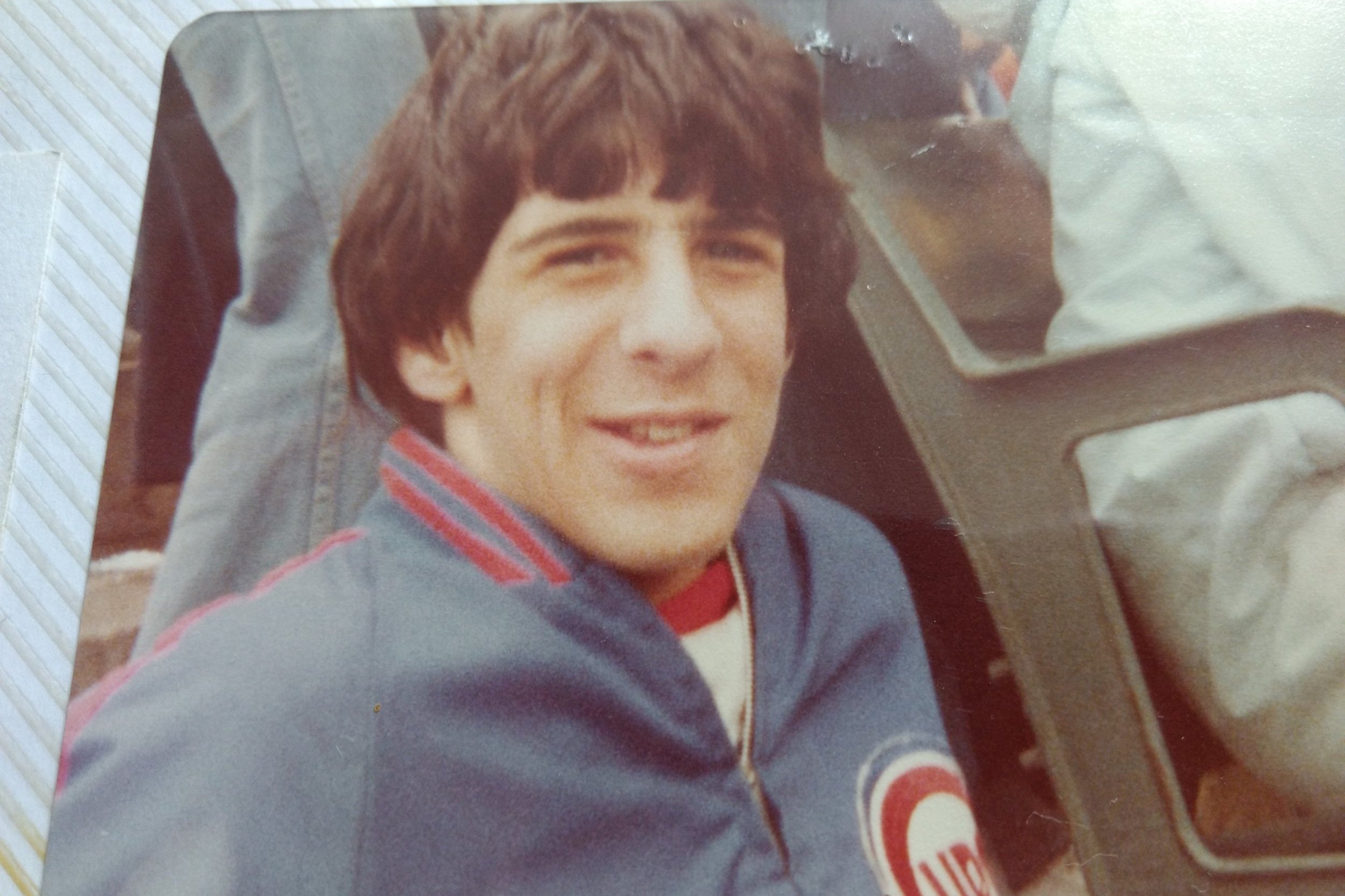David Jacobson
“I have so much inside of me that needs to get out and that is the genesis of my more creative personal artistic work. When I was younger, I was very angry- I grew up in troubled times in the late 60s, early 70s. Everything that's happened in ensuing decades, I feel has done harm to our world and removed a lot of soul that I experienced when I was younger. Things are corporatized, commoditized, cleansed in ways that seem unnatural and less human. So, I wanted a way to process some of that for myself. I imagined that I was not alone in having these feelings and thought maybe I would strike a nerve in others by communicating, expressing some of the feelings that I have had over the last 50 years now.”
David is in the front row, second from the right. Photo from David Jacobson
“Stemming from my childhood and some of the questions I was asking of myself spiritually, in terms of my Jewish upbringing, in terms of my relationship with my family, poured into my first book, a coming of age story, probably geared more toward young adults than anything else, called Az Der Papa. That's a Yiddish phrase that comes from a proverb about the relationship between fathers and sons. Early in the pandemic, my father got sick and I had been taking notes and formulating around this book for decades, literally kept putting it down because I was more intent on some of my professional work. But at the beginning of the pandemic, with a lot of time on my hands and a new sense of urgency around, I decided to finish it. I did, and self published it.”
Photo from David Jacobson
“I grew up in Chicago at the youngest years and became a Cubs fan, absolutely enchanted by Wrigley Field and the environment, which was much more rough and raw back in the 70s than it is now. The joy that I sensed in the air there, the sense of community from other people in the bleachers with me, the magnificence of the athleticism on display. All of that in the natural sunlight, with a lake breeze, and all these sorts of things that make Wrigley so magical. That just really got into my heart and soul.
What I value most is human connection and contributing to a world that is more peaceful. Where people, especially youth, have the greatest possible opportunity to achieve their potential. A lot of the actual movement through sports and what sports brings out in people is really important to me and translates into metaphor into most of what I do.”
Photo from David Jacobson
“We moved from Skokie, Illinois to Milwaukee, Wisconsin when I was eight. And I went from an almost entirely Jewish neighborhood in Skokie where I was one of many, into a predominantly black neighborhood on the northwest side of Milwaukee where I was one of very few. Basketball played a huge role in my ability to connect with my new friends and to help process what was going on in this new environment.”
“Growing up on the Northwest side of Milwaukee, in that black neighborhood, I found African American culture absolutely magnetic, gripping to me from comedy, to music, to food, to the amazing athletes that were such an inspiration in my childhood, especially Muhammad Ali.
As I got older, [understanding] what shaped that culture, both positively and negatively throughout history, was something that I really cared about. [I] just got deeper and deeper into it, reading a lot of African American literature, going to certain shows, certainly when I got into college, seeking out every opportunity I could to visit speakers on campus from Nikki Giovanni, to Sonia Sanchez, to Eldridge Cleaver, who by that time was far from his Black Panther days and well into his Sun Myung Moon idolatry.”
“The cumulative effect of being involved with these different cultures is to understand that we really do have a common basis in humanity, and a common basis in sharing a planet, regardless of what color we are or how much money we make.
The most challenging thing to me as an entrepreneur, an artist, [and] writer, is capitalism. I think that would be echoed by anybody else who really wants to put quality work out into the world and do so with integrity and being true to themselves and to the people that they hope to serve or impact.”
“As I got into the pre teen years, about 12 years old, I realized exactly what my athletic potential was and how scant it was. [I] decided that I always wanted to be around sports, so maybe I would be a sports writer. And I did have some writing talent recognized through the school system. When somebody told me that I was good at something, I decided to keep doing that thing. It was the first time that I had ever really felt a success fully realized, through my own powers and having a sense of real potential. So I stuck with that and grew into different forms of sports writing, sports marketing. Other elements of marketing communications that have fused into what I now do with Inkflow Communications.
Inkflow Communications is an opportunity for me to bring my lived experience and what I value in the world to my art and craft to make my clients be the best they can be in terms of having the impact they desire in our shared society.”
Inkflow Communications, founded by David Jacobson








